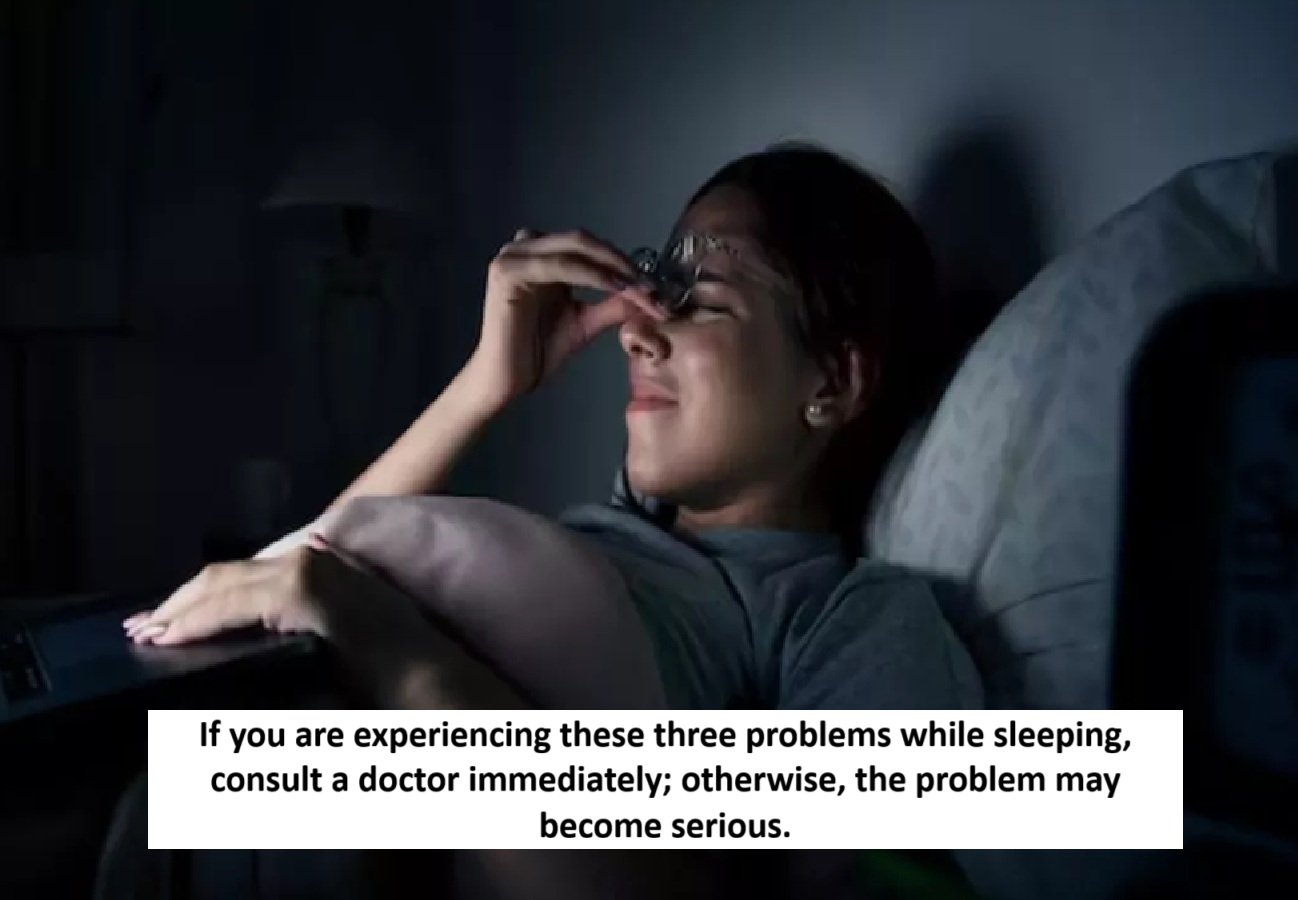
News Topical, Digital Desk : Due to today's busy lifestyles, many people struggle with insomnia. Most people don't discuss it with their doctors, and even physicians often don't ask about sleep issues. However, insomnia is no minor problem; it can be more serious than you might think. Experts warn about some of its warning signs.
Why should you see a sleep doctor?
Occasional sleep problems or sleep deprivation are normal, especially when exams or project work are approaching. However, doctors cite three major reasons why you should see a doctor if you have sleep problems.
Difficulty sleeping
When you're in bed, you may feel your mind racing or unable to relax. These are symptoms of insomnia or restless leg syndrome, which is characterized by an uncontrollable urge to move your legs. Stress and anemia can also worsen these symptoms. There's no single cause for insomnia. If these symptoms persist for more than three months, treatment is essential. However, if the symptoms worsen or begin to affect your daily routine, you may want to see a doctor earlier.
Regularly using alcohol, Benadryl, cannabis, or melatonin (without consulting a doctor) can also be a major cause of insomnia. These may help you fall asleep faster, but they affect sleep quality and increase the risk of sleep disorders.
daytime sleepiness
It is normal to feel a little sleepy after lunch in a dark room or on a comfortable sofa, but it is not normal to doze off while working or driving. In sleep apnea, patients feel difficulty in breathing while sleeping. They do not remember problems like snoring, gasping or shortness of breath at night, but they keep feeling headache or tiredness throughout the day. In very rare cases, symptoms of narcolepsy are seen, which are called 'sleep attacks'. They fall asleep for a few seconds or minutes during the day and have trouble sleeping at night.
Before seeing a doctor
Most sleep problems can be diagnosed through primary care or by a sleep specialist. It's important to mention any concerns, such as sudden awakenings, persistent sleepiness, or daytime fatigue, when seeing a doctor. Before seeing a doctor, keep a two-week sleep diary, detailing your sleep and wake times, medications, exercise, alcohol, or caffeine intake. However, don't over-exert yourself on sleep tracking, as it can worsen your problems.
Sleep disturbances
Sleep isn't an eight-hour coma; frequent awakenings are possible, especially after a certain age. If these awakenings last five to ten minutes or longer, they could be a sign of a sleep disorder or other medical condition.
According to a survey, problems like bladder, stress and pain are the main causes of sleep difficulties in people aged 65 to 80 years. Diagnosing these can naturally improve sleep. Some patients experience parasomnias or abnormal behaviors, such as pacing, eating, or shouting or fighting while asleep. This can cause frequent sleep disruptions. Ultimately, problems like obesity, high blood pressure, kidney disease or Parkinson's disease can cause insomnia. Therefore, consulting a doctor is essential.
--Advertisement--

 Share
Share



